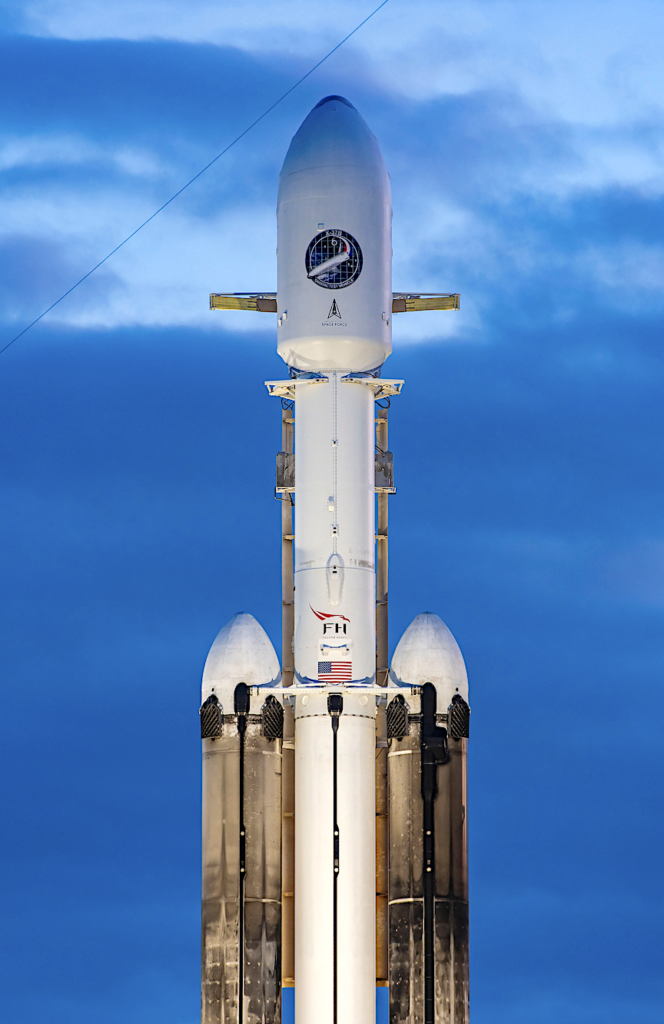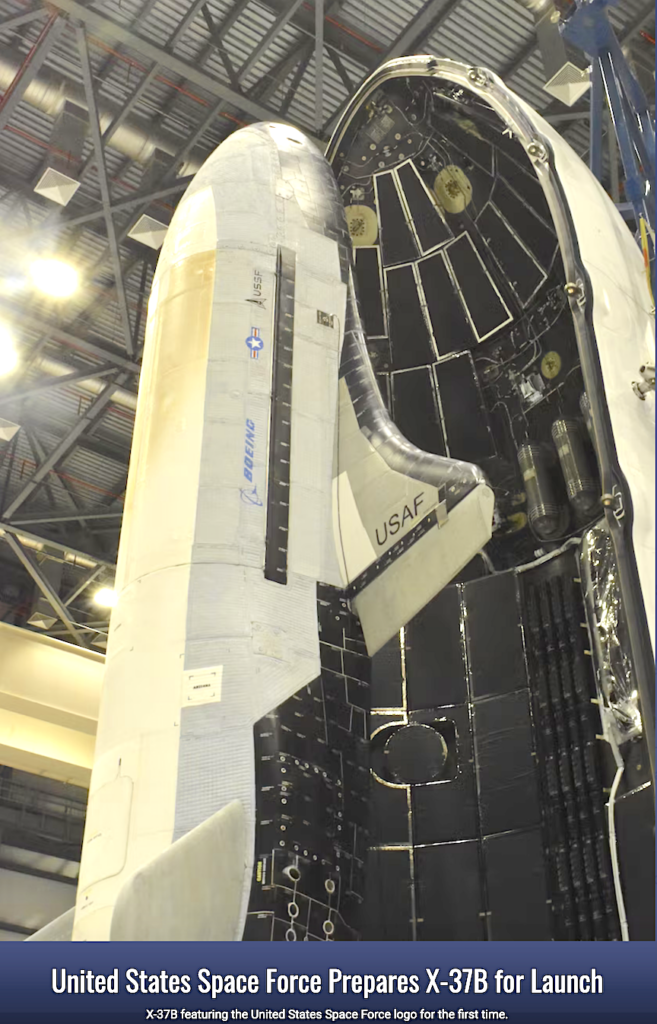
UPDATE #3: Now targeting no earlier than Wednesday, December 13 for Falcon Heavy to launch USSF-52 from Launch Complex 39A (LC-39A) at NASA’s Kennedy Space Center in Florida. The extra time allows teams to complete system checkouts ahead of liftoff. Teams are also keeping an eye on weather, which is 40% favorable for launch with heavy winds and clouds.
“We are standing down from tomorrow’s Falcon Heavy launch of USSF-52 to perform additional system checkouts. The payload remains healthy while teams work toward the next best launch opportunity. We’re also keeping an eye on the weather and will announce a new launch date once confirmed with the Range.”

UPDATE 2: After a second day delay, SpaceX is now targeting Tuesday, December 12 at 8:14 p.m. ET for Falcon Heavy’s launch of the USSF-52 mission to orbit from Launch Complex 39A (LC-39A) at NASA’s Kennedy Space Center in Florida. A backup launch opportunity is available on Wednesday, December 13 if needed.
The Falcon Heavy had been scheduled to launch the U.S. Space Force’s robotic X-37B space plane from Florida on Monday night (December 11), a liftoff known as USSF-52. But about 30 minutes before the planned 8:24 p.m. EST (0124 GMT) liftoff time, SpaceX announced a scrub.
“Standing down from tonight’s Falcon Heavy launch due to a ground side issue; vehicle and payload remain healthy. Team is resetting for the next launch opportunity of the USSF-52 mission, which is no earlier than tomorrow night,” SpaceX wrote via X (formerly known as Twitter).
USSF-52 will be the first X-37B mission to ride atop a Falcon Heavy, which can take the space plane higher than it has ever gone before. The goals of the coming mission “include operating in new orbital regimes, experimenting with space domain awareness technologies and investigating the radiation effects to NASA materials,” Space Force officials wrote in a release last month.
Most details of X-37B missions are classified, however, USSF-52 there is an unclassified experiment: NASA’s “Seeds-2” project, which will test the effects of radiation and long-duration spaceflight on plant seeds.
